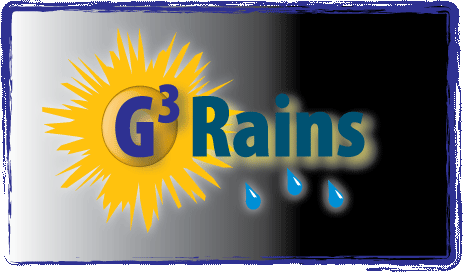Be prepared
We are relatively new amateur (ham) radio operators. Currently our radio gear consists of a couple of HT (handheld) radios with the requisite extra goodies (charger, better antenna, speaker microphones, etc.) plus a small external antenna on the house. We got into ham radio because we wanted to be prepared for emergencies for ourselves and to be able to help others should the need arise. It has been fun getting to know other ham operators and becoming involved in our local amateur radio club, whether or not there is ever a need for our radios in an emergency setting.
Recently we spent two full days listening to speakers and learning about how to be prepared to offer assistance with our radio equipment and expertise. Some of the technical information like understanding antennas and how different styles, sizes, heights, and more affect the transmission and reception of radio waves is a little mind-boggling for non-engineers like us, but we got the general idea and now know where to go for details when we are ready to add or change antennas. Our neighbors and family will no doubt be relieved to hear that no, we will not be putting up a 150 foot tower in our backyard anytime soon, although there are no rules against it in our housing development.
The information that was perhaps the most immediately useful was that on personal preparedness. We know that at some point, western Washington is almost certainly going to experience a powerful earthquake. Some areas of the state experienced incredible devastation from flooding this past winter, avalanches and mudslides took out homes in various areas, and windstorms seem to be a yearly occurrence, knocking out power and toppling massive trees on homes, cars, and businesses. It is not a question of IF something is going to happen, it's a matter of WHEN and HOW BAD will it be. In King County where we live, there has been a public awareness campaign for some time now called 3 Days, 3 Ways; Are You Ready? We hear that phrase nearly daily, because the reality is that if a disaster happens, emergency services will be overwhelmed and unable to help most people for at least three days. At one time I worked with an earthquake recovery task force for banks in California, and we were told that in all likelihood if something really big happened, it could take up to two weeks for emergency services to reach many people.
Knowing all that and doing something to prepare in some way are two different things, however. As one speaker said, there are several myths about disasters: it won't happen here; it won't happen to me; it won't be as bad as they say; it will be so bad that there is nothing I can do to prepare; or it's going to be so bad that I will be dead and it won't matter. Denial and fear both can immobilize us so that we do nothing at all instead of taking preparedness one step at a time and doing at least a little something each month to move forward and become a little better prepared. An all or nothing mentality—if I can't do everything to get prepared today, it's not good enough—hurts us so that we remain unprepared. We have to take that next step of applying the information we know and putting it into practice: make a plan, put together a kit, be informed.
That is the way it is with a lot of things in life. We can have all the knowledge in the world, but if we never take the logical next step of applying it, the knowledge is of no real use to us. We have our radios and our licenses to use them, but if we never get on the air and make contact with others to put them to work for us, they are just so much clutter, and we have wasted our time and money on them. Likewise, if we believe that God loves us but never take the next step of responding to that love, it does us no good. God offers us an opportunity to have relationship with him so that we can be prepared for whatever comes our way; that is the best emergency preparedness of all. We may not know what is coming in terms of emergencies, but having a relationship with God assures us that we are connected to the one who does know and will carry us through. Yes, we still need to make those reasonable preparations to take care of our own families for a period of time, but we can do so with the confidence that if and when something happens, we will not have to face it alone. Are you ready for whatever comes your way?
April 6, 2008
